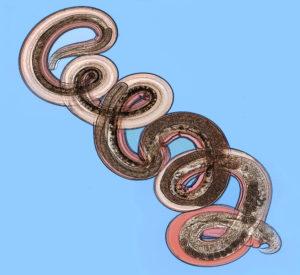Chronic helminth infections have been associated with immunological hyporesponsiveness. This favours the survival of the helminths in the body as the host immune response is dampened and cannot adequately remove them from the body. Although immune hyporesponsiveness is a benefit to the host if they suffer from autoimmune diseases or allergy, this state may make the host more susceptible to other pathogens and reduce responses to vaccination.
A team of researchers from Leiden University, Netherlands, led be Maria Yazdanbakhsha, investigated the effect of helminth on a community in Indonensia that has a high prevalence of helminth infections. The researchers conducted a household cluster-randomized, double-blind, placebo-controlled trial where they gave individuals the anti-helminth drug known as albendazole every 3 months for 21 months.
1059 participants were recruited who had one or more helminth infection(s). The anti-helminth drug reduced the number of infections but did not completely eradicate them from the community. After treatment with the drug, the immune response of the participants significantly improved.
Helminth-specific IL-2 was significantly higher after treatment and interesting anti-malarial (Plasmodium falciparum parasite) TNF and IFN- γ were significantly higher in the treated group. This shows that non-helminth-specific immune response were also affected by treatment of the helminth infection.
Treatment did not affect production of regulatory T cells (Treg cells) but there was a significant decrease in the amount of signature inhibitory molecule CTLA-4. They also found that the increases in immune response were not a direct result of albendazole treatment.
This study reveals that treatment of helminth infections in endemic areas may lead to better immune responses against other pathogens such as malaria parasites. Helminth infections lead to the hyporesponsiveness of the immune system and therefore treatment of these infections may aid in improving individuals immune response to vaccinations.
Journal Article: Wammes et al., 2016. Community deworming alleviates geohelminth-induced immune hyporesponsiveness. PNAS
Article by Thandeka Moyo












